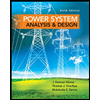The burden imposed by an ammeter may be represented by a pure resistance of 0.1 ohm. The ammeter is being used to measure current through a branch forming part of an electric circuit. With the ammeter removed, the Thevenin equivalent voltage relative to the two circuit terminals where the ammeter was connected is 110 volt (rms). With the ammeter removed, the Thevenin equivalent impedance relative to the two circuit terminals where the ammeter was connected is 1 ohm. The Thevenin equivalent impedance may be assumed to be purely resistive. Which one is the correct statement? Select one: O a. With the ammeter in circuit, taking into account its loading effect, its reading should be 100 A. O b. With the ammeter in circuit, taking into account its loading effect, its reading should be 122 A. Oc. With the ammeter in circuit, taking into account its loading effect, its reading should be 110 A. O d. With the ammeter in circuit, taking into account its loading effect, its reading should be 1100 A.
The burden imposed by an ammeter may be represented by a pure resistance of 0.1 ohm. The ammeter is being used to measure current through a branch forming part of an electric circuit. With the ammeter removed, the Thevenin equivalent voltage relative to the two circuit terminals where the ammeter was connected is 110 volt (rms). With the ammeter removed, the Thevenin equivalent impedance relative to the two circuit terminals where the ammeter was connected is 1 ohm. The Thevenin equivalent impedance may be assumed to be purely resistive. Which one is the correct statement? Select one: O a. With the ammeter in circuit, taking into account its loading effect, its reading should be 100 A. O b. With the ammeter in circuit, taking into account its loading effect, its reading should be 122 A. Oc. With the ammeter in circuit, taking into account its loading effect, its reading should be 110 A. O d. With the ammeter in circuit, taking into account its loading effect, its reading should be 1100 A.
Delmar's Standard Textbook Of Electricity
7th Edition
ISBN:9781337900348
Author:Stephen L. Herman
Publisher:Stephen L. Herman
Chapter7: Parallel Circuits
Section: Chapter Questions
Problem 3PP: Using the rules for parallel circuits and Ohmslaw, solve for the missing values....
Related questions
Question
please include working

Transcribed Image Text:The burden imposed by an ammeter may be represented by a pure resistance of 0.1 ohm.
The ammeter is being used to measure current through a branch forming part of an electric
circuit. With the ammeter removed, the Thevenin equivalent voltage relative to the two
circuit terminals where the ammeter was connected is 110 volt (rms). With the ammeter
removed, the Thevenin equivalent impedance relative to the two circuit terminals where the
ammeter was connected is 1 ohm. The Thevenin equivalent impedance may be assumed to
be purely resistive.
Which one is the correct statement?
Select one:
O a. With the ammeter in circuit, taking into account its loading effect, its reading should
be 100 A.
O b. With the ammeter in circuit, taking into account its loading effect, its reading should
be 122 A.
O c. With the ammeter in circuit, taking into account its loading effect, its reading should
be 110 A.
O d. With the ammeter in circuit, taking into account its loading effect, its reading should
be 1100 A.
Expert Solution
This question has been solved!
Explore an expertly crafted, step-by-step solution for a thorough understanding of key concepts.
Step by step
Solved in 2 steps with 1 images

Knowledge Booster
Learn more about
Need a deep-dive on the concept behind this application? Look no further. Learn more about this topic, electrical-engineering and related others by exploring similar questions and additional content below.Recommended textbooks for you

Delmar's Standard Textbook Of Electricity
Electrical Engineering
ISBN:
9781337900348
Author:
Stephen L. Herman
Publisher:
Cengage Learning

Power System Analysis and Design (MindTap Course …
Electrical Engineering
ISBN:
9781305632134
Author:
J. Duncan Glover, Thomas Overbye, Mulukutla S. Sarma
Publisher:
Cengage Learning

Delmar's Standard Textbook Of Electricity
Electrical Engineering
ISBN:
9781337900348
Author:
Stephen L. Herman
Publisher:
Cengage Learning

Power System Analysis and Design (MindTap Course …
Electrical Engineering
ISBN:
9781305632134
Author:
J. Duncan Glover, Thomas Overbye, Mulukutla S. Sarma
Publisher:
Cengage Learning